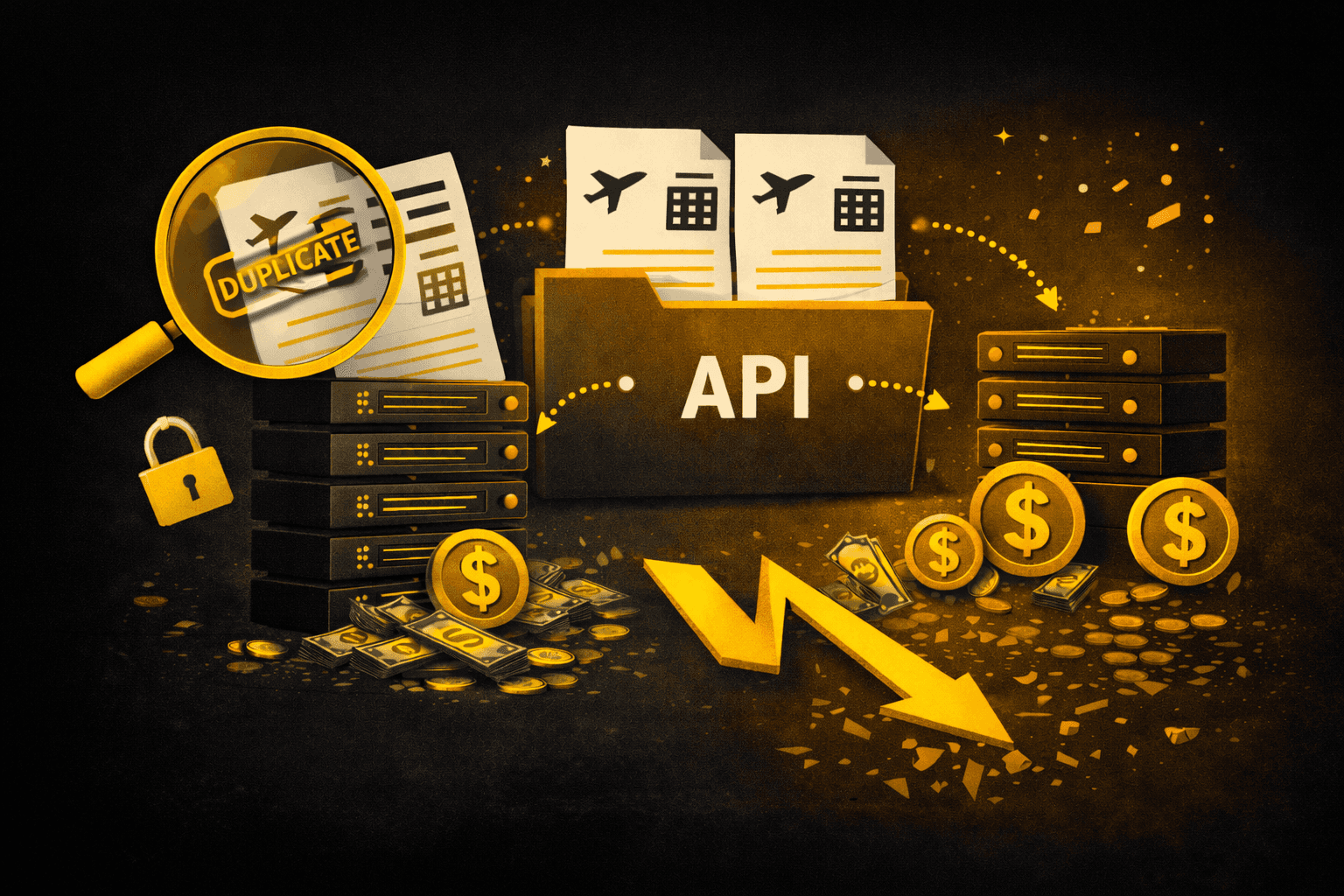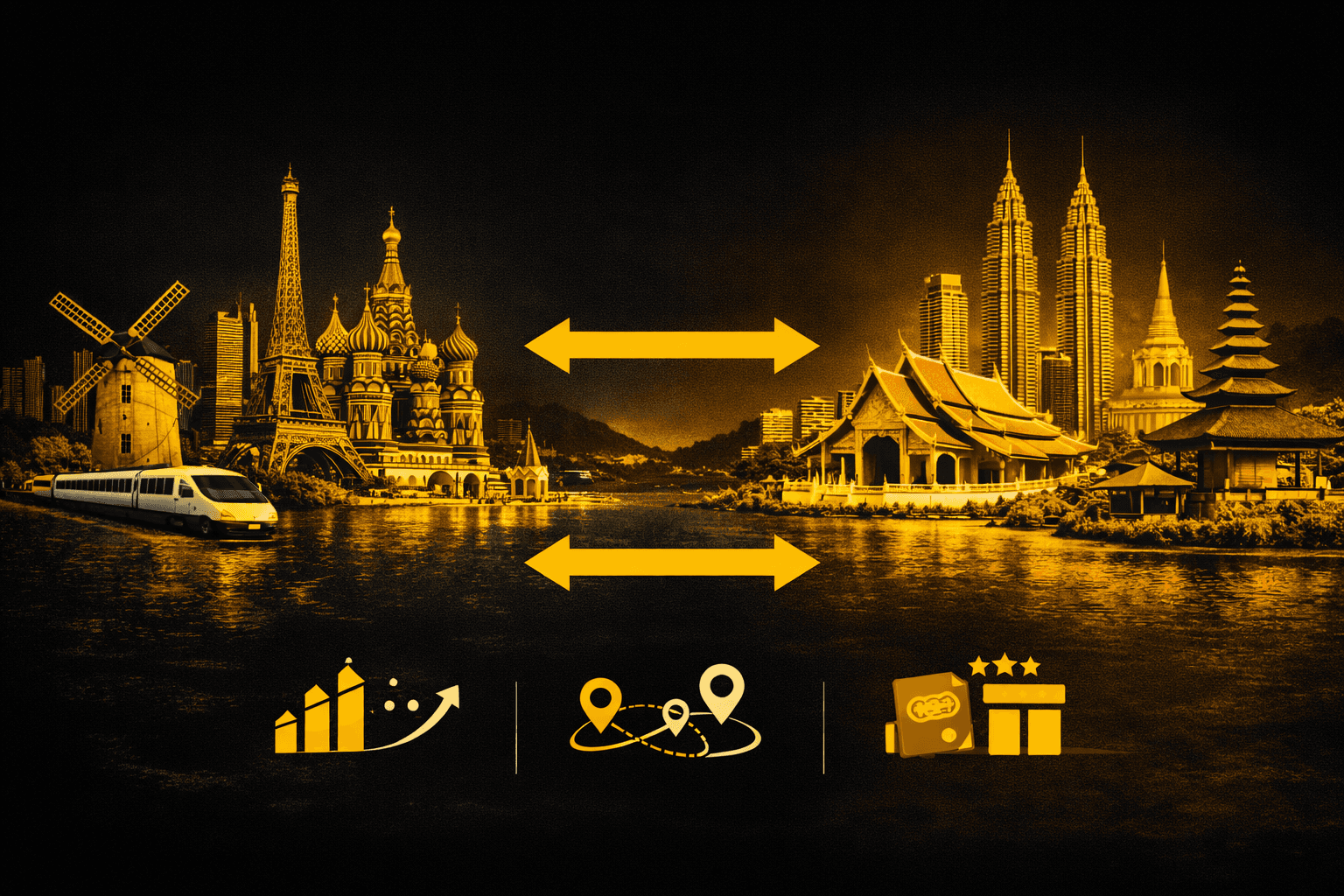Why Every Travel Company Needs to Think Like a Tech Company
The travel industry's $1.4 trillion market is being rewritten by companies that don't think like traditional travel businesses. While established players focus on legacy operations, tech-minded companies are capturing disproportionate value through fundamentally different approaches to customer experience, data utilization, and scalable growth.
The Uncomfortable Truth: Traditional Travel Thinking is Obsolete
Traditional travel companies operate with a hospitality mindset: focus on service delivery, manage physical assets, optimize for capacity utilization. This worked for decades when customer expectations were lower and competition was limited to similar businesses.
Today's reality is different. Customers don't compare your booking experience to other travel companies, they compare it to Amazon, Netflix, and Uber. They expect personalization, instant gratification, and frictionless experiences that most travel companies can't deliver with traditional approaches.
The numbers tell the story:
Airbnb: $75 billion valuation with no owned inventory
Booking Holdings: 27% profit margins through platform economics
Traditional hotel chains: 8-12% profit margins with heavy asset bases
The difference isn't just efficiency—it's an entirely different operating philosophy.
What "Thinking Like a Tech Company" Actually Means
1. Data-First Decision Making
Traditional Travel Approach:
Decisions based on historical trends and industry benchmarks
Quarterly planning cycles with annual strategic reviews
Gut instincts and experience-based choices
Tech Company Approach:
Real-time data analysis drives every decision
A/B testing for continuous optimization
Predictive analytics inform future strategies
Implementation Example: Netflix doesn't guess what content viewers want, they analyze viewing patterns, completion rates, and engagement metrics to predict success. Travel companies should apply this same rigor to route planning, pricing strategies, and service offerings.
Action Items:
Implement real-time analytics dashboards
Establish A/B testing protocols for all customer touchpoints
Use predictive modeling for demand forecasting and inventory management
2. Platform Thinking Over Product Thinking
Traditional Travel Approach:
Sell individual services (flights, hotels, packages)
Optimize each service separately
Focus on improving existing offerings
Tech Company Approach:
Build ecosystems that connect multiple services
Create network effects where value increases with users
Design platforms that enable third-party innovation
Case Study: Uber's Evolution Uber didn't just build a better taxi service, they created a platform connecting drivers, riders, restaurants, and delivery services. Each addition makes the platform more valuable for all participants.
Travel Application: Instead of selling flights and hotels separately, create integrated travel ecosystems where booking one service enhances others. Loyalty programs become data platforms, partnerships become distribution channels, and customers become brand advocates through seamless experiences.
3. Exponential Growth Mindset
Traditional Travel Approach:
Linear growth through market share expansion
Compete for existing customers in mature markets
Scale through operational efficiency improvements
Tech Company Approach:
Exponential growth through market creation
Build viral loops and network effects
Scale through automation and systematization
The Compound Effect: Tech companies design for exponential growth from day one. Every customer acquisition, feature release, and partnership decision considers: "How does this contribute to exponential rather than linear growth?"
Strategic Framework:
Identify network effects in your business model
Build viral mechanisms into customer experience
Create platforms that become more valuable with scale
4. Customer-Centric Product Development
Traditional Travel Approach:
Develop services based on operational capabilities
Focus on what the company can deliver efficiently
Iterate slowly based on customer complaints
Tech Company Approach:
Start with customer problems and work backward
Build minimum viable products for rapid testing
Iterate quickly based on user behavior data
Amazon's Obsession: Amazon's success comes from genuine customer obsession, every decision starts with "What's best for the customer?" rather than "What's most profitable for us?"
Travel Implementation:
Map complete customer journeys, not just booking processes
Identify pain points through behavioral data, not surveys
Design solutions that create customer delight, not just satisfaction
The Strategic Advantages of Tech-First Thinking
Higher Profit Margins Through Scalability
Traditional Model:
Revenue scales linearly with capacity
Marginal costs remain significant
Profit margins constrained by physical operations
Tech Model:
Revenue scales exponentially with network effects
Marginal costs approach zero
Profit margins expand with scale
Example: Booking.com's Platform Economics Booking.com generates $15+ billion in revenue with relatively few employees because they've built systems that scale automatically. Each new property listing increases platform value for travelers, and each new booking increases value for properties, reating a self-reinforcing growth loop.
Competitive Moats Through Network Effects
Traditional Competitive Advantages:
Prime locations
Exclusive supplier relationships
Operational efficiency
Tech Competitive Advantages:
Network effects that strengthen with scale
Data advantages that improve with usage
Platform ecosystems that lock in participants
The Difference: Traditional advantages can be copied or overcome with capital. Tech advantages become stronger as competitors try to replicate them.
Faster Innovation Cycles
Traditional Innovation:
12-24 month development cycles
Committee-based decision making
Risk-averse testing approaches
Tech Innovation:
Rapid prototyping and testing
Data-driven decision making
Fail-fast learning cycles
Impact on Market Position: Companies that innovate faster capture market opportunities before competitors recognize them. This isn't just about technology, it's about organizational design for speed.
Your 90-Day Action Plan
Days 1-30: Foundation
Implement unified customer data platform and real-time analytics
Create cross-functional product teams with agile processes
Establish data-driven decision making protocols
Days 31-60: Platform Building
Migrate to cloud-based, API-first architecture
Map complete customer journeys and identify automation opportunities
Develop ecosystem partnership strategies
Days 61-90: Growth Acceleration
Build personalization algorithms and predictive analytics
Create viral customer acquisition loops and referral systems
Implement AI-powered customer service and self-optimizing systems
Success Stories: Companies That Made the Shift
Airbnb: $75 billion valuation with no owned inventory by building a platform connecting hosts and guests, scaling through network effects rather than physical assets.
Expedia Group: 25% improvement in conversion rates and 30% increase in customer lifetime value through machine learning, predictive analytics, and continuous A/B testing.
Singapore Airlines: 25% reduction in delays through predictive maintenance and AI-powered customer service, creating seamless digital experiences.
The Risks of Staying Traditional
Market Share Erosion: Online travel agencies now capture 70% of leisure bookings by offering superior technology and customer experience.
Talent Gap: Traditional travel companies struggle to attract top technology talent who prefer working for tech-first companies
Customer Expectations: Travelers now expect Amazon-level convenience and Netflix-level personalization, failing to deliver results in declining satisfaction and market share loss.
ROI of Tech-First Transformation
Revenue Impact:
15-30% annual growth rates vs 3-7% for traditional approaches
25% improvement in conversion rates through personalization
30% increase in customer lifetime value
Operational Efficiency:
40-60% reduction in routine operational costs through automation
25% improvement in pricing optimization through data analytics
20-30% more effective marketing spend
Market Valuation:
Traditional travel companies: 8-12x EBITDA multiples
Tech-enabled travel companies: 15-25x EBITDA multiples
Conclusion: The Urgency of Transformation
The travel industry stands at an inflection point. Companies that embrace tech-first thinking will capture disproportionate value creation over the next decade. Those that cling to traditional approaches will find themselves increasingly marginalized.
The choice is clear:
Transform now and lead industry evolution
Wait and see while competitors capture market share
Ignore the trend and risk obsolescence
The companies that will thrive are those that recognize this isn't just about implementing new technology, it's about fundamentally reimagining how travel businesses create, deliver, and capture value.
Your next move determines your market position for the next decade. The question isn't whether to think like a tech company, it's how quickly you can make the transformation.
Key Takeaway: Thinking like a tech company isn't about becoming a technology business, it's about adopting the mindset, processes, and strategies that enable exponential growth and sustainable competitive advantage in a digitally-driven world.
The travel companies that survive and thrive will be those that master the intersection of hospitality service and technology scalability. The transformation starts with changing how you think about your business.




